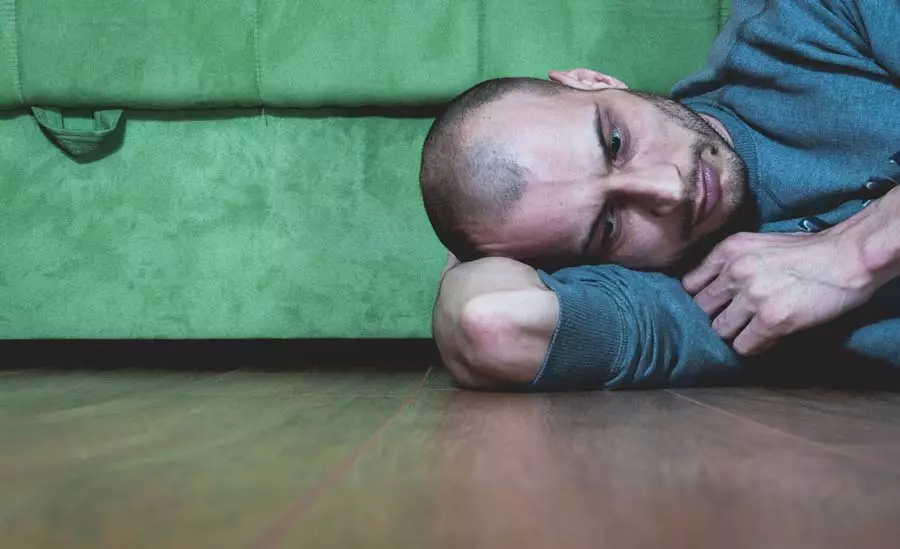Signs of Heroin Use

How to Spot Heroin Withdrawal Symptoms and Signs
Heroin is a synthetic opioid drug manufactured from the naturally occurring chemical morphine, which is extracted from the opium poppy plant’s seed pods. Opiates, a category of opioids that are natural as opposed to synthetic, can be dangerous and cause addiction and death. Heroin addiction is one of the worst situations one can fall into.
Heroin addiction is one of the toughest habits to kick. People who initially snort or inhale heroin may transition to intravenous injection once physical dependence sets in. This is when heroin addiction reaches its height and the chances of heroin overdose skyrocket. At this stage, it may be difficult for your loved one to hide signs of heroin use, or even attempt to.
If you or someone you love is having challenges associated with heroin addiction, please keep reading. Resurgence Texas is here to help get you needed information and delivers effective treatments for this highly addictive drug as well!
Addiction Treatment that
Just Works
Individualized treatment programs delivered in a comfortable, relaxed setting promote healing in your recovery journey.
Heroin Abuse Overview
Heroin, otherwise known as “boy,” “dope,” “dog food,” and “H” on the streets, is highly addictive because of how quickly it crosses the blood-brain barrier and reaches the brain. Those who engage in heroin abuse, whether they are teenagers or adults, eventually build up a tolerance that makes it take more of the substance to achieve the same effect.
Heroin addiction is common, as is heroin physical dependence. Physical dependence develops on heroin as the body becomes accustomed to its presence, and withdrawal occurs when use is abruptly cut off. Heroin withdrawal can begin as soon as two hours after the last usage.
Heroin is an extremely dangerous and addictive narcotic, especially for young people. Even a short time of dealing with heroin abuse can have devastating effects on a person’s social, educational, psychological, legal, and physical well-being.
What Increases the Odds of Heroin Addiction or Heroin Abuse?
The exact reasons why some people develop an addiction to heroin and engage in other forms of substance abuse aren’t exactly a mystery. That said, there are dozens of reasons, and pinning one exact reason on one person with a substance abuse issue is the real challenge. Research suggests that genetic, physiological, and environmental risk factors all have a role in the development of addiction. In most cases, people will say that heroin abuse is a genetic issue.
A large number of neuroimaging studies have shown that long-term substance use alters brain structure and function. Their precise function in addiction is still unknown.
Addiction appears to have an environmental component; adolescents whose primary caregivers or parents abused substances are more prone to experiment with these substances themselves. Adolescents who start using substances like alcohol and drugs at younger ages are also more prone to develop an addiction.
The following items may increase the risk of heroin abuse at random:
- Being a male
- Experiencing any type of behavioral symptoms or mental health disorders
- Peer pressure
- Lack of a parenting dynamic
Signs and Symptoms of Heroin Abuse

Heroin misuse symptoms in adolescents and young adults vary greatly from one person to the next because of factors including personality, how long someone has been abusing, whether or not they have a mental disorder, and whether or not they engage in other drug use. There are a number of telltale indications that can indicate an adolescent or adult is using heroin, including:
Behavioral Signs and Symptoms of Heroin Users
- Skipping out on duties at home
- Constant bathroom breaks
- Underachieving at work or school
- Lack of financial stability
- Sketchy activity (out all hours of the night, etc.)
- Issues with law enforcement
- A new circle of friends who may also show signs and symptoms of being heroin users
- Wearing long sleeves to cover up track marks
Physical Signs and Symptoms of Heroin Addiction
- Nodding out
- Deeper, slower breaths
- Dry mouth and nose
- Red, flushed skin
- Weight loss or change in appetite
- Runny nose
- Itching
- Nausea and vomiting
- Odors coming from the user.
- Slurred words
- Lethargic activity
- Acts like they’re high or lethargic
- Needles or straws around the home
Addiction Treatment that
Just Works
Individualized treatment programs delivered in a comfortable, relaxed setting promote healing in your recovery journey.
Mental Symptoms of Heroin Abuse
- Decreased ability to solve non-complex issues
- Unreasonable thinking
- Terrible decision-making
- Disoriented
- Impairment of short-term memory
- No self-control
Behavioral & Relationship Signs & Symptoms:
- Wild mood swings
- Unexplainable changes
- Rapid shifts in attitude
- Irritability
- No motivation or drive to succeed
- Increased paranoia
- Fearfulness
- Anxiety
- Depression
What are the Consequences of Heroin Use?

Heroin is one of the most destructively addictive drugs because of the lengths users will go to in order to satisfy their cravings. Because users get sick when they don’t have the drug, the risk factors for engaging in illegal or immoral behavior to avoid unpleasant withdrawal symptoms increase exponentially. Among the most prevalent outcomes of heroin use are:
- Pneumonia or chronic breathing issues
- HIV or AIDS
- Infections at Injection sites
- Mental Illnesses
- Decline in self-care and overall health in general
- Risk of using other drugs and combining heroin use
- Risk of blood clots from injecting heroin
- Various other factors
The Aftermath of Heroin Abuse and Withdrawal
Overdosing on heroin, which is a CNS depressant, is lethal. The risk of overdosing on heroin is high because no user knows for sure what’s in the drug. Call 911 immediately if you or a loved one are experiencing what may be a heroin overdose.
Symptoms, Causes and Risk Factors of Heroin Overdose Include:
- Cold, wet skin with cyanosis (a bluish tint to the lips and fingernails)
- Stomach cramps and constipation
- Dry mouth
- Pinned out eyes
- Acting delirious, being disoriented, or becoming extremely drowsy
- A very weak pulse
Once heroin crosses the blood brain barrier and overdose takes effect, reversing the symptoms can be challenging without the assistance of NARCAN. Substance abuse heroin problems should call for the presence of this drug at all times to reverse an overdose.
The Symptoms/Signs of Withdrawal

Withdrawal symptoms from heroin usage are extremely unpleasant but not life-threatening (normally) – but most heroin addicts will go to great lengths to avoid them. Withdrawal happens when someone who has become physically reliant on the substance suddenly stops taking it. You or a loved one can have the withdrawal symptoms checked by medical professionals at the right treatment center.
Those who use heroin often experience the following withdrawal symptoms:
- Anxiety and irritability
- Muscle weakness
- Runny nose and watery eyes
- Insomnia
- Sweating
- Yawning
Symptoms of late-stage heroin withdrawal:
- Stomach cramps
- Diarrhea
- Dilated pupils
- Nausea and vomiting
Causes and Risk Factors: Heroin Addiction
Addiction almost seldom occurs in the absence of another mental disorder. You’ll find some of the likely causes and risk factors to be the following co-occurring conditions:
- Mood Disorders
- Anxiety and depression
- Co occurring disorders
- Alcoholism
- Schizophrenia
Opioid and heroin addicts are at particularly high risk for co-occurring disorders. Now more than ever, it’s critical to be close to a facility that can help you recover from this kind of setback.
At Resurgence Texas, we offer one of the most effective regimens for treating heroin dependence and other opioids, combining holistic alternatives to healing with more traditional, evidence-based treatments.
Long Term Recovery at Resurgence Texas
A phone call can bring you hope. Don’t let heroin or opioids control your life any longer; get the assistance you need.
When you or someone you know has challenges with heroin, every day is a day lived on borrowed time. If you haven’t looked at the most recent overdose statistics, over 120,000 users died from overdose deaths in 2021. This number is likely much higher for 2022 – the figures have yet to be released.
To put things in perspective – opioid overdose kills just as many people as strokes, heart attacks, and diabetes in the United States. Don’t become another statistic of this horrible epidemic.
Reach out to a member of our Admissions team at Resurgence Texas. We’ll help walk you through the admissions process to make you feel comfortable and boost your confidence about your odds of success during treatment. With the right care team and a positive attitude, you can start fighting your heroin addiction with Resurgence Texas today!
Addiction Treatment that
Just Works
Individualized treatment programs delivered in a comfortable, relaxed setting promote healing in your recovery journey.
